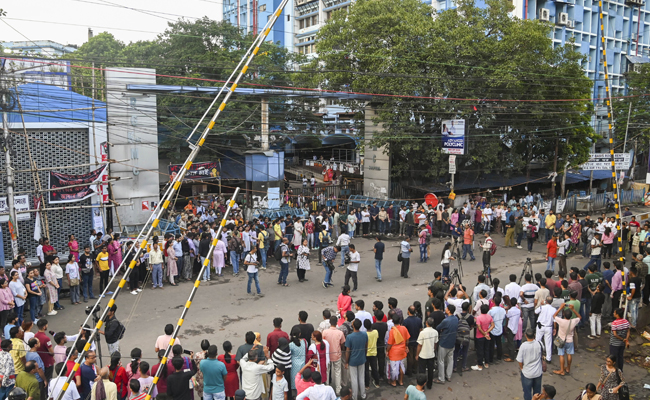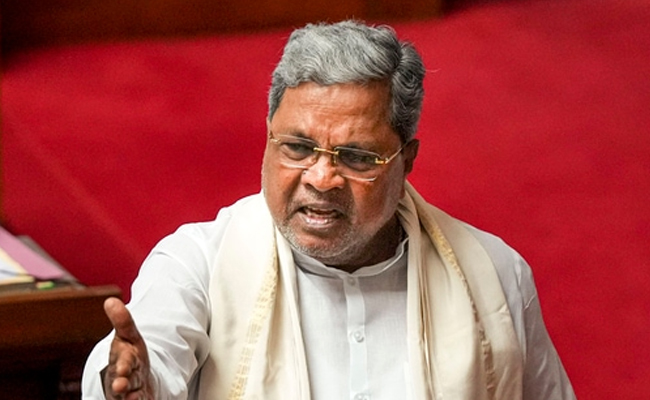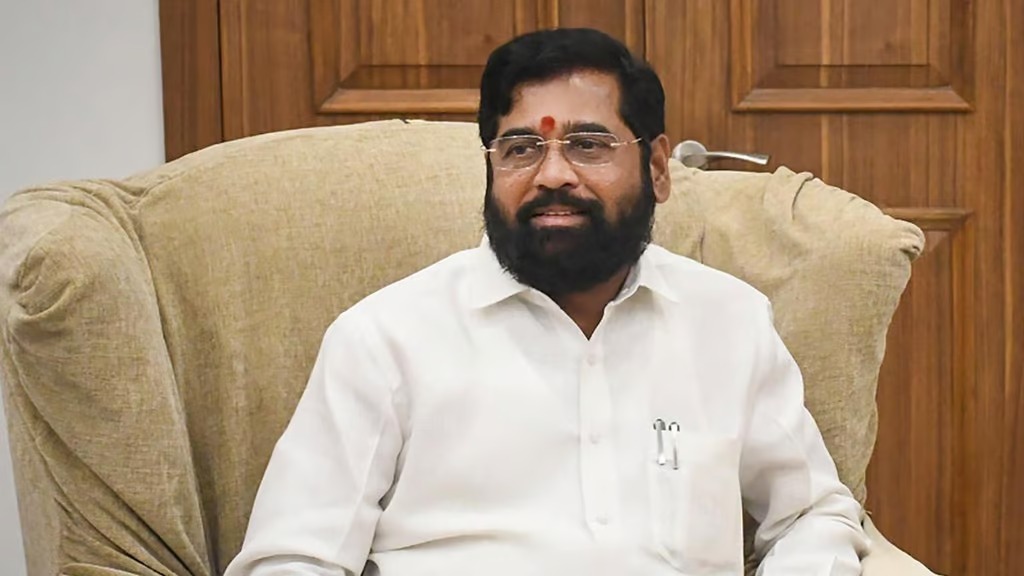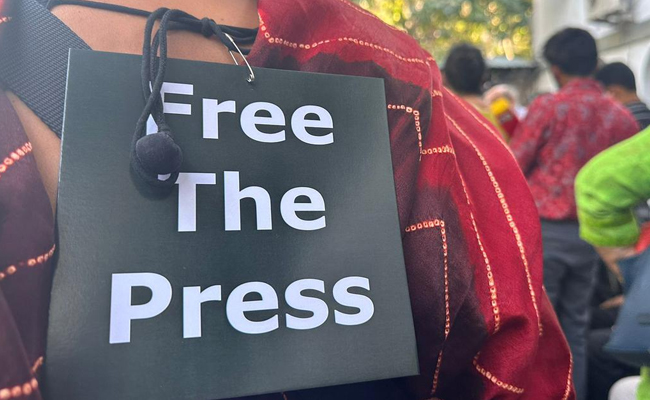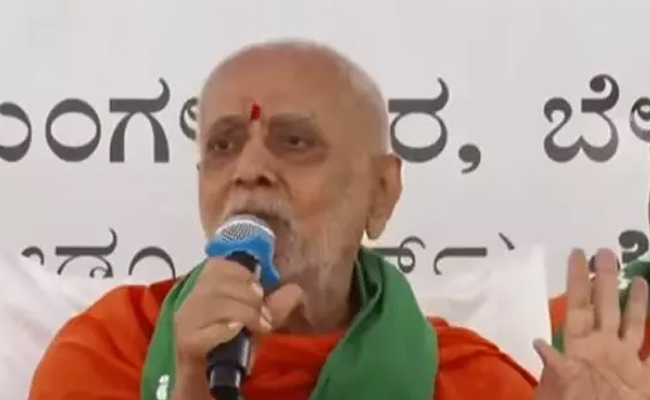Kolkata (PTI): The rape and murder of a woman doctor at RG Kar Hospital has triggered massive public outrage in West Bengal, creating a major political crisis for the ruling TMC and posing one of the biggest challenges to Chief Minister Mamata Banerjee's leadership since she took office in 2011.
The incident sparked a sustained mass movement transcending political affiliations, with citizens from all walks of life demanding justice and accountability, and its grassroots intensity and lack of overt political banners have made it the most formidable civil movement since Banerjee's rise to power, exposing deep-seated frustrations over governance and safety under her administration.
Political observers and leaders believe the sustained mass movement following the tragedy has created fertile ground for a new political party in West Bengal driven by ordinary citizens, students, and professionals disillusioned with the ruling TMC and opposition BJP and CPI(M).
"The movement's strength lies in its independence from traditional political banners, reflecting a broad demand for justice, transparency, and effective governance. It has exposed a leadership vacuum in the existing opposition parties that a new party could potentially fill by aligning with the protesters' calls for accountability," political scientist Maidul Islam said.
The young doctor, whose body was found on August 9, was allegedly raped and murdered while on duty. A civic volunteer was arrested by Kolkata Police the next day.
The public reaction was intense, with thousands of medical professionals, students, activists, and ordinary citizens flooding the streets of Kolkata and other cities in protests marked by poignant displays of grief and anger.
Initially "slow and controversial" in its response, the TMC's handling of the case has been widely criticised as inadequate and reactive.
The CM's public condemnation and promises of swift justice failed to quell public anger or restore faith in her administration's ability to protect its citizens.
A senior TMC leader told PTI on condition of anonymity that "while Kolkata Police arrested the main accused within 24 hours", administrative missteps and allegations from the victim's parents led to a public perception of government cover-up.
This left the party and administration struggling to counter the mass movement and on the defensive.
TMC spokesperson Krishanu Mitra defended the party's commitment to justice by stating that "the protests prove there is a democratic space for agitation in West Bengal, unlike BJP-ruled states".
However, he admitted that the incident has put the TMC in a tight spot, despite its strong popular support, as opposition forces work to capitalise on the tragedy.
The incident has also brought out differences within the ruling TMC.
TMC deputy leader in Rajya Sabha, Sukhendu Sekhar Ray, faced party backlash after publicly supporting the 'Reclaim the Night' programme and calling for the CBI to question arrested former principal of RG Kar Medical College and Hospital, Sandip Ghosh, and Kolkata Police Commissioner Vineet Goyal.
Meanwhile, his colleague Jawhar Sircar announced his resignation from the Rajya Sabha and exited politics, citing frustration with the state government's inaction against corrupt doctors.
"This incident poses one of the biggest challenges for the party as it is coming from a non-political force," a TMC leader said.
Opposition parties BJP and CPI(M) have swiftly capitalised on the tragedy to criticise the TMC's governance, launching aggressive campaigns that accuse the ruling party of failing to ensure basic safety for women.
"This is a direct consequence of the TMC's failure to provide a secure environment. Banerjee, who is also the home minister, must resign immediately," senior BJP leader Suvendu Adhikari said at a rally.
The CPI(M) emphasised the systemic governance failures that the incident has highlighted.
Political analysts pointed out that the opposition parties have failed to penetrate the mass movements organised by civil society, common people, and doctors.
"The RG Kar incident has again brought to the fore the power of civil society movements, which, during the last 13 years of the TMC regime, had been absent. Additionally, the failure of the BJP and CPI(M) to take the lead in this spontaneous mass movement has shown that people are yearning for a new political force to challenge the TMC," political scientist Biswanath Chakraborty said.
Echoing similar views, political analyst Suman Bhattacharya said that although there is a visible dent in TMC's urban votes, especially among women, the CPI(M) and BJP are unlikely to benefit from this.
"There is a visible attempt to build a new political force to take on the TMC, which can appeal to both liberal voters who are apathetic towards the BJP and a section of disillusioned urban and semi-urban voters who want an alternative to the TMC-BJP binary," he said.
Mitra also acknowledged that there is an attempt to create a new political force, but whether this effort will succeed remains to be seen.
Speaking about the future of the stir, Rimjhim Sinha, who launched the 'Reclaim the Night' initiative, described it as a new fight for women's freedom.
"I don't want to talk about politics, but the fact remains that all the political parties have failed to fight for the cause and rights of women. If the parties are not serious about fighting for our rights, we will fight it out on our own," she added.
Let the Truth be known. If you read VB and like VB, please be a VB Supporter and Help us deliver the Truth to one and all.
New Delhi (PTI): Karnataka Chief Minister Siddaramaiah on Friday met Prime Minister Narendra Modi, requesting rectification in short term farm loan limit, Rs 10,000 cr in financial support and urgent clearances for the Mekedatu Balancing Reservoir and Kalasa Bandhuri projects.
In the meeting in Parliament complex, Siddarmaiah pressed for several key interventions focusing on critical areas, including agriculture, water resources and urban infrastructure.
Deputy Chief Minister and Irrigation Minister D K Shivakumar, Energy Minister K J George and Urban Development Minister Byrathi Suresh accompanied the CM for the meeting.
The chief minister highlighted that NABARD has drastically cut the Short Term Agricultural Credit Limit for Karnataka from Rs 5,600 crore in 2023-24 to just Rs 2,340 crore in 2024-25, a 58 per cent reduction that could severely impact farmers' access to soft loans.
"I request you to look into this and direct the Finance Ministry to rectify this situation so that farmers in Karnataka continue to receive soft agricultural loans," Siddarmaiah said in a representation made to the PM.
He requested Rs 5,300 crore for the Upper Bhadra Project, which promises to irrigate central Karnataka's drought-prone farmlands. The project has been pending since the 2023-24 Union Budget.
He also pushed for clearances of two critical water projects - the Mekedatu Balancing Reservoir on the Kaveri river and the Kalasa Bandhuri project on the Mahadayi river -- both awaiting approvals from the Jal Shakti and Environment Ministries.
Highlighting Bengaluru's status as a tech hub and top GDP contributor, the state requested special assistance for urban and public transportation.
Additionally, Karnataka sought Rs 10,000 cr to develop infrastructure in 13 emerging city corporations.
On fiscal allocation, the CM complained of receiving an unfavourable deal from the 15th Finance Commission, which reduced its tax share by 1 per cent.
Siddaramaiah urged the government to provide compensation grants and ensure future finance commissions do not penalise states with significant tax contributions.
The Karnataka chief minister also met Congress leader Priyanka Gandhi Vadra and congratulated her on being elected as an MP from Wayanad.

